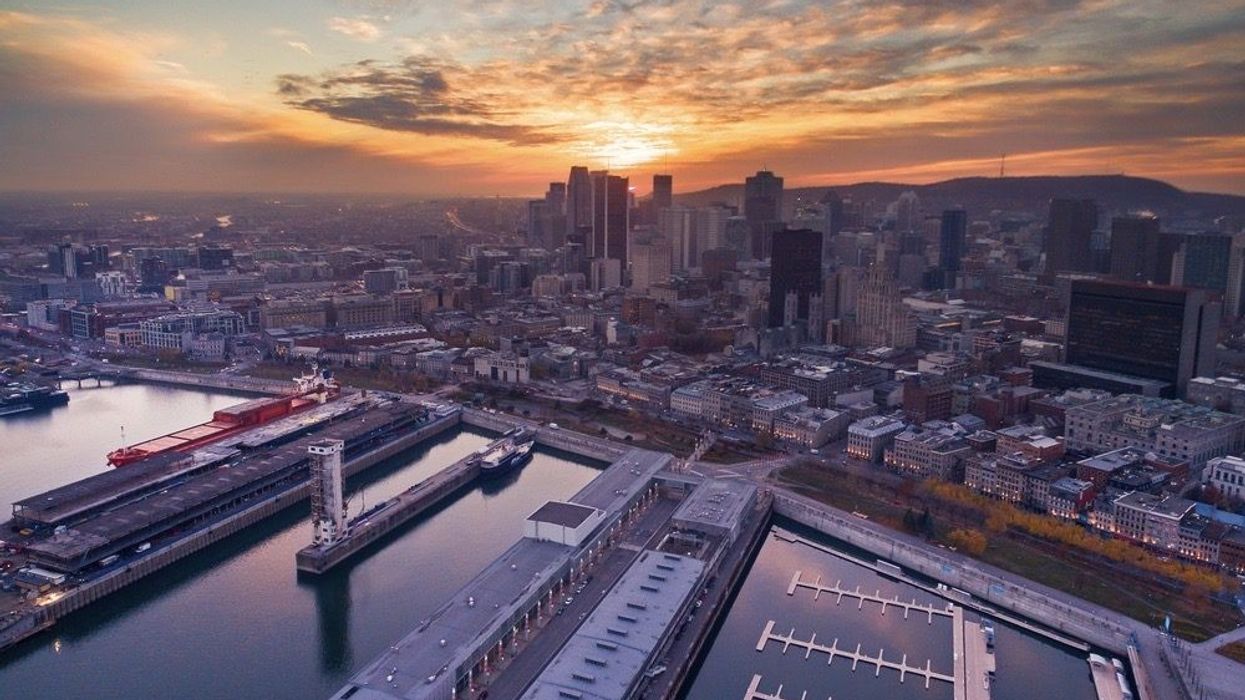Quebec hasn’t been known as an economic powerhouse since before the province’s referendums on separation but, lo and behold, it’s leading Canada’s post-COVID-19 economic recovery.
A new report from Scotiabank’s Marc Desormeaux revealed that Quebec’s economic growth has outpaced the rest of the country. In fact, during the second quarter of the year, Quebec’s economy expanded as the rest of Canada’s contracted, and the province’s real GDP has, since March, surpassed pre-pandemic levels.
Desormeaux’s report says Quebec’s lockdowns and reopenings benefited its economy, thanks in large part to healthy household balance sheets, pre-pandemic economic momentum, and government policy support.
One reason for Quebec’s auspicious turn is interprovincial migration into the province, which the report says could, if sustained, boost GDP by 1%.
READ: Menkes on the Evolution of Toronto’s Waterfront Commercial Real Estate Scene
According to Colin Worrell, Managing Director of Colliers’ Montreal brokerage, there was about $600-650 million worth of office sales in downtown Montreal last quarter alone, which is slightly below the $750 million benchmark reached in the first quarter of 2020 before the COVID-19 pandemic struck.
“Those types of players buying those are either institutional or well-placed private investors,” he said. “Those guys stopped doing everything throughout most of the pandemic, but in the last few quarters there’s been renewed interest.”
The nadir of downtown Montreal office market sales during the pandemic’s first year was $150 million in Q3-2020.
“There’s been a significant increase,” Worrell added. “We’ve seen a rebound that’s indicative of the market now.”
Nevertheless, there are challenges in the Montreal market. There has been a negative absorption rate in Greater Montreal, although it remains too early for businesses to return employees to their offices. Worrell suggests that, in spite of minor challenges, investor confidence in the city’s office sector is robust, citing Amazon as one among several major companies looking for 40,000 sq. ft. of office space.
Altus Group says Montreal’s office sector has received $7.9 billion of investment year-to-date -- excluding a massive $5.7 billion sale last month that’s slated to close in January -- and while that still trails Toronto and Vancouver, which have had $25.9 billion and $8.2 billion, respectively, of investment, there’s more upside in Montreal because of higher cap rates and, therefore, yields.
“You’re starting to see more confidence with investors buying in the Montreal and Quebec markets. When you look at yields and returns, there’s more upside potential in Montreal compared with Toronto and Vancouver,” Altus Group’s Ray Wong, Vice President of Data Operations and Data Solutions, said. “Montreal is getting more attention because of its cap rates and there’s more opportunity in some assets, so the city will continue being attractive for commercial investment. Because of growth in both the marketplace and demographics, we’ll see further growth and demand for commercial investment going into next year.”
Cap rates in Montreal’s office, industrial and multifamily sectors are about 50-100 basis points higher than in Toronto and Vancouver, Wong added.
“It used to be a bigger gap but it has narrowed for certain asset types, especially on the industrial side. If anything, an industrial building in Montreal is getting low cap rates because of the availability rate compared to Toronto and Vancouver. Depending on the asset class, there’s a slightly higher cap rate in Montreal compared to the other two cities and that’s what’s attracting investors, as well. They think they can get slightly higher returns for some of the core assets.”
Industrial real estate is in high demand and the vacancy rates are incredibly low across all major markets -- it’s respectively 1.1%, 1.2% and 2.2% in Vancouver, Toronto and Montreal, according to Altus figures -- and Worrell says rents are beginning to steadily rise in the Quebecois metropolis.
“Five years ago, average rental rates were $4.00-4.50 per square foot (psf) for industrial, but net asking rates last quarter were $8.40 psf and now we’re seeing rates going to $12.00-14.00 psf,” Worrell said. “That is newfound confidence in Montreal for landlords.”





















